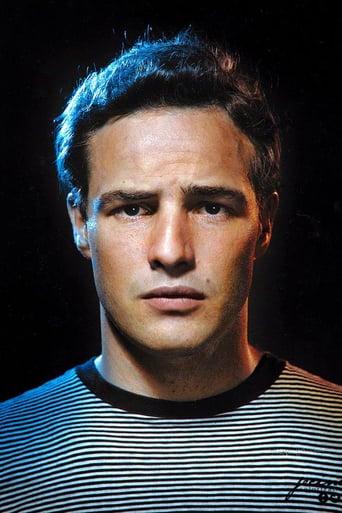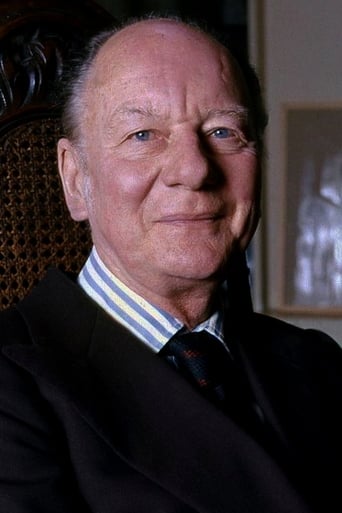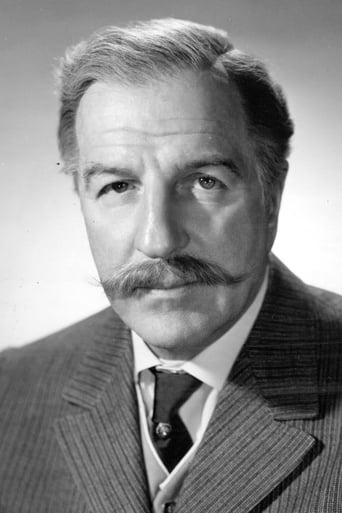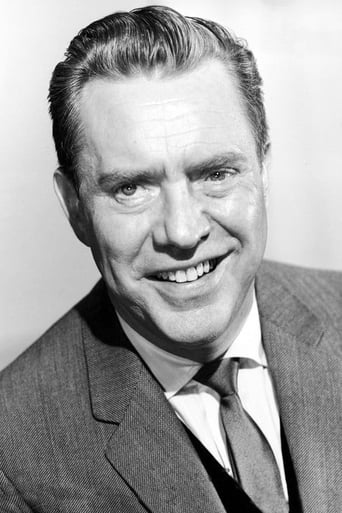VividSimon
Simply Perfect
Stometer
Save your money for something good and enjoyable
Spidersecu
Don't Believe the Hype
Mathilde the Guild
Although I seem to have had higher expectations than I thought, the movie is super entertaining.
red-95752
The book and the movie of Julius Caesar isn't my tastes. This is my opinion of the movie and I do respect others opinions. But this movie is a snooze a thon. I paid $5 for this movie on Amazon and thankfully I got my refund, but still waste of my time that now I cant get back. It was just terrible acting and very boring. Fell asleep on the couch after watching not even 10 minutes of it, I woke up to realize it was still on and the sooze a thon went on and on and it felt like the movie was on forever. I seriously don't recommend this movie. Please don't waste your hard earned money and time for this. For Christ sake its 2018, not the medieval times!
Wuchak
Released in 1953 and based on William Shakespeare's play, "Julius Caesar" chronicles the last days of Julius Caesar (Louis Calhern) in mid-March, 44 BC. John Gielgud plays Cassius, the leader of a group of high-ranking Romans who seek to assassinate Julius while James Mason appears as reluctant accomplice, Brutus. Marlon Brando plays Mark Antony, a sympathizer of Caesar who condemns the murder. Greer Garson and Deborah Kerr are stunning as Calpurnia and Portia respectively. Douglass Watson plays Octavius, Caesar's nephew.Whether or not you'll like this B&W film depends on if you favor The Bard and iambic pentameter. If so, you'll probably love it; if not, you'll find it dreadfully dull. Those in the middle, like me, will certainly find things to appreciate, but will generally be bored by the proceedings. Brando is captivating as usual, particularly in his extended funeral speech to the citizens, but he has greater performances playing more interesting characters in better movies, like "The Young Lions" (1958), "One-Eyed Jacks" (1961), "Mutiny on the Bounty" (1962), "The Missouri Breaks" (1976) and "Apocalypse Now" (1979), to name a handful. If you like this one I encourage you to also check out the 1970 version, which is the same movie with different actors. I prefer it because it's in color and is more modern with superior action sequences, like Caesar's brutal assassination and the climatic battle. Charlton Heston is just as effective as Brando in the same role, albeit in his unique manner. It's interesting comparing the two movies because each have their strong and weak points. The film runs 120 minutes and was shot in Culver City, California (studio) and nearby Iverson Ranch & Bronson Caves, Los Angeles. It was directed by Joseph L. Mankiewicz. GRADE: C
MisterWhiplash
Julius Caesar, the classic story of power corrupting and what happens when it's usurped, is the stuff of a near-masterpiece in 1950's Hollywood. The direction is elegant and timed just right to get the performers on their beats and delivering more and then some. Interesting to see the intensity so LARGE on the fronts of both fronts of British classical-trained theater (John Gielgud, as the most psychologically pathological character, Cassius, fully delivering the goods, plus James Mason being his Mason-iest) and the Method (Brando, seeming like he's always been in these robes - at least this week).It's Shakesepare on Golden-age Hollywood scale, but it's kept intimate when it counts, and the material is allowed to shine fully. This is the Godfather of political dramas, and so many, many lines have been taken into just everyday grammar; aside from the 'fault is not in our stars' line, listen for others like ' O pardon me, thou bleeding piece of earth' or 'it was Greek to me'. And yet it's not simply that these actors get some of the meatiest-dramatic lines ever written, like in the history of all civilizations, but that this is all about what it means to have, take, live with, demolish and get back or keep protected Power, with a capital P.It's almost unfair to give a proper review to the film after seeing it once, as certain big set pieces - or even a couple of the conversations that Cassius has with Brutus or the other Roman senators plotting the death of their "beloved" Caesar - are quite dense with visual touches and details of performance. When Brando has his major set piece (he's not in as much of the film as you might expect, but his presence is felt more, which seems to be a thing with Brando character), addressing the crowd devastated over the loss of their ruler, it's a pinnacle of acting. He isn't just talking to no one, or to himself. He's making it very personal, all the more sad and that the revenge against the betrayers all the more stronger. How to sway a crowd is the name of the dramatic angle here, and it's the stuff of the best Hollywood dramatic acting, writing and direction (and art direction too, what sets) could offer.Is it perfect? Maybe not. The final battle is good but almost, to me, a little short, as if Mankiewicz steps up to make an epic conclusion, but decides to side-step it as if he isn't totally trusting in his capabilities (that would come later, one supposes, with Cleopatra as far as BIG epics went). And yet the final moments with Cassius and Brutus are so effective it makes one want to say nevermind. Especially Gielgud impresses here, with a role that requires a lot of forceful talking, bordering on yelling, with declarations and insinuations and other things - as big as his acting is, just as with Brando and Mason to an extent, though he kind of pulls it back when he can (see the tent scene between Brutus and Cassius before battle), there's subtleties there, little moments you can see the actor working through the emotional logic first, the dense Shakespeare poetry second.As with many Shakesepare movies, it may help being familiar with the play ahead of time to get all of the words and idiosyncracies of the Bard prose. But as far as just the core story goes, it's the stuff of legend. Surely one of those films of the 50's, along with On the Waterfront and Streetcar, where you can run it in an acting school and it might almost be enough to show the movie without any lecture to understand how to command attention from a partner, the audience, the whole world.
Steffi_P
Since the dawn of the talkies Hollywood had been searching for ways to do justice to the words of William Shakespeare. Now that Laurence Olivier had made his mark with Henry V and Hamlet, the game had been raised considerably. The dilemma of the US film industry was over whether to muster as much English Shakespearean authenticity as they could, or to throw decorum to the winds and make the bard go Hollywood. But this 1953 version of The Tragedy of Julius Caesar brings together experienced and prestigious actors from both sides of the Atlantic with the young, iconic and caustically modern rebel Marlon Brando. How could such a vibrant mismatch work? To find the answer, we have to go back to bard basics. Shakespeare works on a number of levels, and as a result his plays are accessible today despite the archaic and complex wording in them. While few things in a Shakespeare play are stated directly, his lines convey both literal meaning and, through a poetic use of language give the appropriate tone and an impression of what is meant. Characters will often go the long way round to get a point across (for example Casca describing individually each of the three times Caesar put the crown aside, each time exaggerating Caesar's supposed reluctance), in which double meanings and loaded terminology tease clarity out of the flowing speech.Bringing clarity to the meaning of Shakespeare's words is also the job of a creative director, and this applies to both stage and film directors. Doing the job here is one of the best of his day – Joseph L. Mankiewicz. Mankiewicz relies upon professional actors to make an impact, while he himself concentrates on background detail to frame and augment their performance. When he shows Caesar standing before a crowd, the extras in the background are unnaturally still, giving Louis Calhern even more stature and presence. When Cassius and Brutus go to plot Caesar's downfall, the sudden enclosure of the set gives an impression of the privacy of the space, but Mankiewicz still throws in little meaningful additions to the shot that comment on the goings-on. The statues of famous Romans act as surrogates for the presence of the real thing. The billowing cloak of a guard at the end of the corridor gives a bit of dynamic character to certain points in their conversation. During Cassius's powerful soliloquy the moving camera appears to make the ominous, windswept set grow around him.So after the genius of Shakespeare and the craftsmanship of Mankiewicz, it is all down to the talents of the cast. We really do have a delightful line-up here. The thing about all these professionals like Calhern, James Mason, John Gielgud, Greer Garson and Deborah Kerr, is that they all know how Shakespeare is "supposed" to be done. They are able to competently and effectively string the bard's words together into one flowing tapestry. They bring out all the aesthetic beauty in the prose, and this no small or worthless task, and not one of them fails or falters here. Still, it is yet possible to get more from Shakespeare than this.The part of Mark Anthony, while not the largest in the play, is certainly at its moral centre. He is, for want of a better word, the hero; a restorer of justice and the voice of a more just future. It is appropriate then the he be played a little differently. Brando had not done Shakespeare before, and he appears to have taken a fresh approach to the material, viewing Mark Anthony not as a character in the works of the most renowned literary figure the world has ever known, but as an individual to inhabit like anyone else he might play. What Brando really brings to the part is a sense of earnestness. When he delivers his great speech to the masses, his tone is not only commanding – it is decidedly indignant. When he yells the immortal line "Friends, Romans, countrymen, lend me yours ears" he reads it as nothing more or less than a man crying for the attention of the crowd. What Brando does is bring heart and humanity to the pure aestheticism of the play as it exists on paper.Is it sacrilegious to have some hip, method-acting poster boy take on one of the mightiest roles in theatre's grand tradition? There are those who think so – the stage remains to some extent a haven for snobs, but it is their attitudes who are doing Shakespeare a disservice, not the forward-thinking or creative ones. We shall leave the last words to the immortal bard himself, those that he put into the mouth of his antagonist Cassius upon Caesar's murder: "How many ages hence shall this our lofty scene be acted over, in states unborn and accents yet unknown?"






